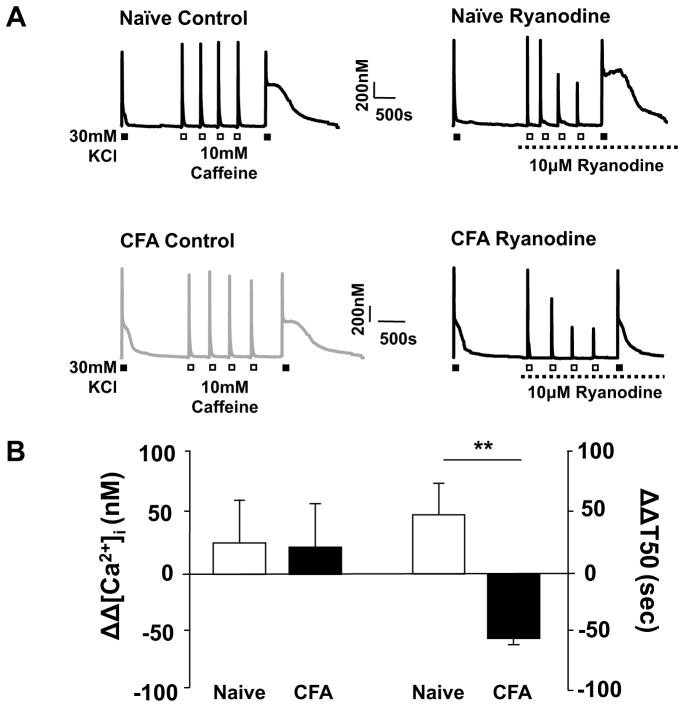Figure 2.
The impact of ryanodine on the inflammation-induced increase in the magnitude and time of decay of the high K+-evoked transient. A) Evoked Ca2+ transients in neurons from naïve (gray traces) and inflamed (black traces) rats challenged with high K+ (30 mM, 4 sec) before and after 4 applications of caffeine (10 mM, 4 sec). Neurons were challenged with caffeine in the presence (Ryanodine) or absence (Control) of ryanodine (10 μM). Note the increase in the duration of the high K+-evoked transient in control neurons following repeated caffeine administration. B) The change in the magnitude (ΔΔ [Ca2+]i (nM)) and decay (ΔΔ T50 (s)) of the high K+-evoked Ca2+ transient associated with the application of ryanodine (10 μM) was assessed as the difference between the high K+-evoked transients before and after the application of ryanodine. Control neurons (open bars, n = 12) treated with an identical protocol revealed a caffeine-induced increase in the T50 of decay, therefore, changes associated with ryanodine (black bars, n = 12) were assessed relative to control with a two way ANOVA. ** p < 0.01, * p < 0.05

